Factory Pattern
Factories
- A Very Simple Factory
- Factory Method
- Abstract Factory
When to use factories?
- Unsure which concrete implementation of an interface I want to return
- Creation should be seperated from representation of an object
- Lots of if/else blocks when deciding which concrete class to create
- Switch statements when deciding which concrete class to create
Simple Factory
Intent
- Creates objects without exposing the instantiation logic to the client
- Refers to the newly created object through a common interface
Implementation
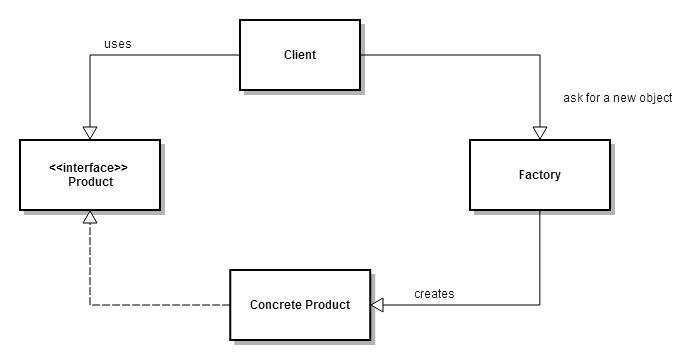
Example Model
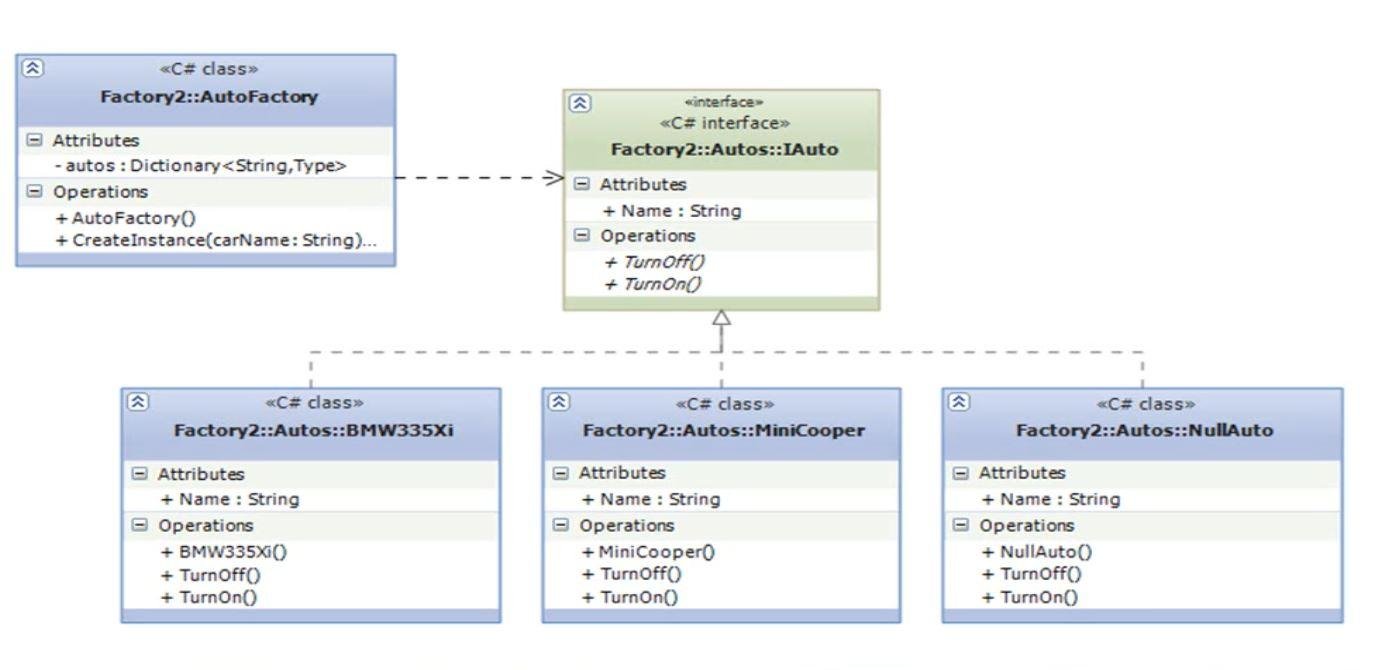
Factory Method
Intent
- Defines an interface for creating objects, but let subclasses to decide which class to instantiate
- Refers to the newly created object through a common interface
Implementation
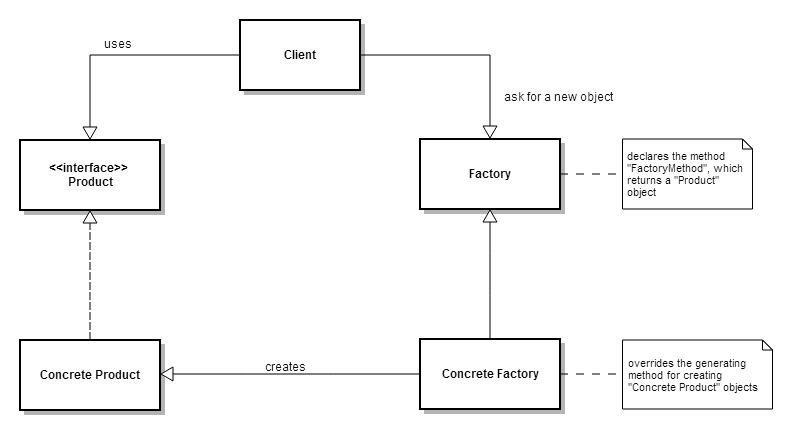
Example Model
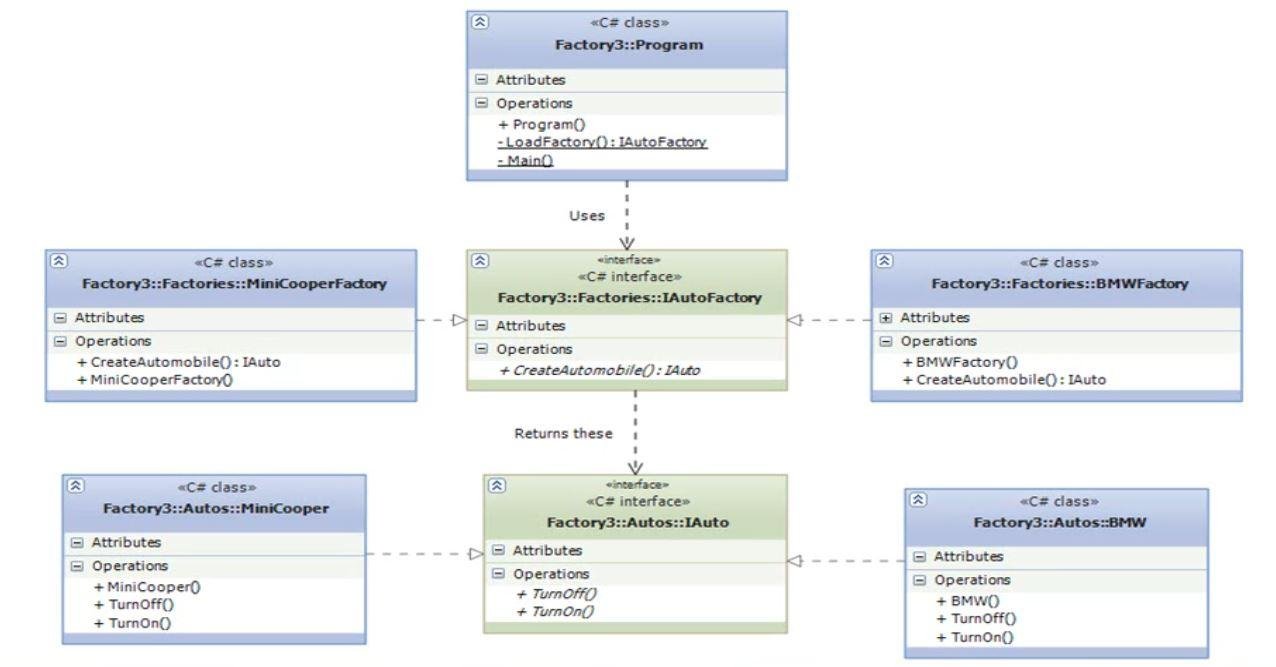
Advantage
-
Eliminate references to concrete classes
- Factories
- Objects created by factories
- Factories can be inherited to provide even more specialized object creation
- Rules for object initialization is centralized
Disadvantage
- May ned to create a factory just to get a concrete class delivered
- The inheritance hierarchy gets deeper with coupling between concrete factories and created classes
Abstract Factory
Intent
- Offers the interface for creating a family of related objects, without explicitly specifying their classes
- Factories create different types of concrete objects(Products)
- A Factory now represents a "family" of objects that it can create
- Factories may have more than one factory method
Implementation
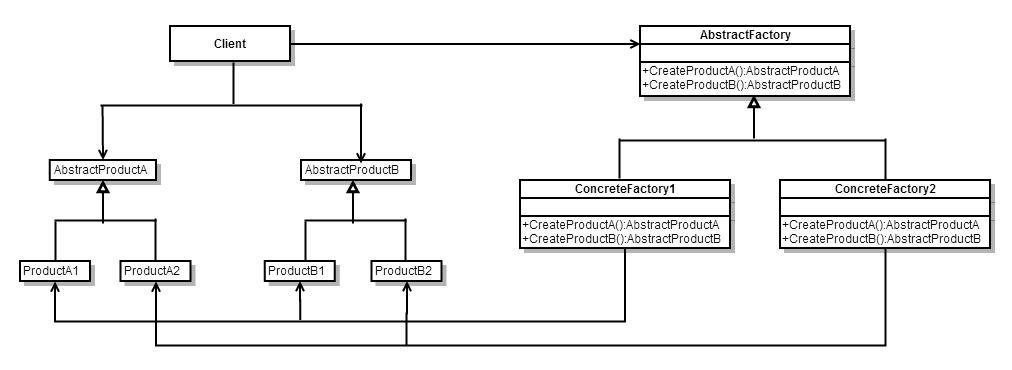
- AbstractFactory - declares a interface for operations that create abstract products
- ConcreteFactory - implements operations to create concrete products
- AbstractProduct - declares an interface for a type of product objects
- Product - defines a product to be created by the corresponding ConcreteFactory; it implements the AbstractProduct interface
- Client - uses the interfaces declared by the AbstractFactory and AbstractProduct classes
Example Model
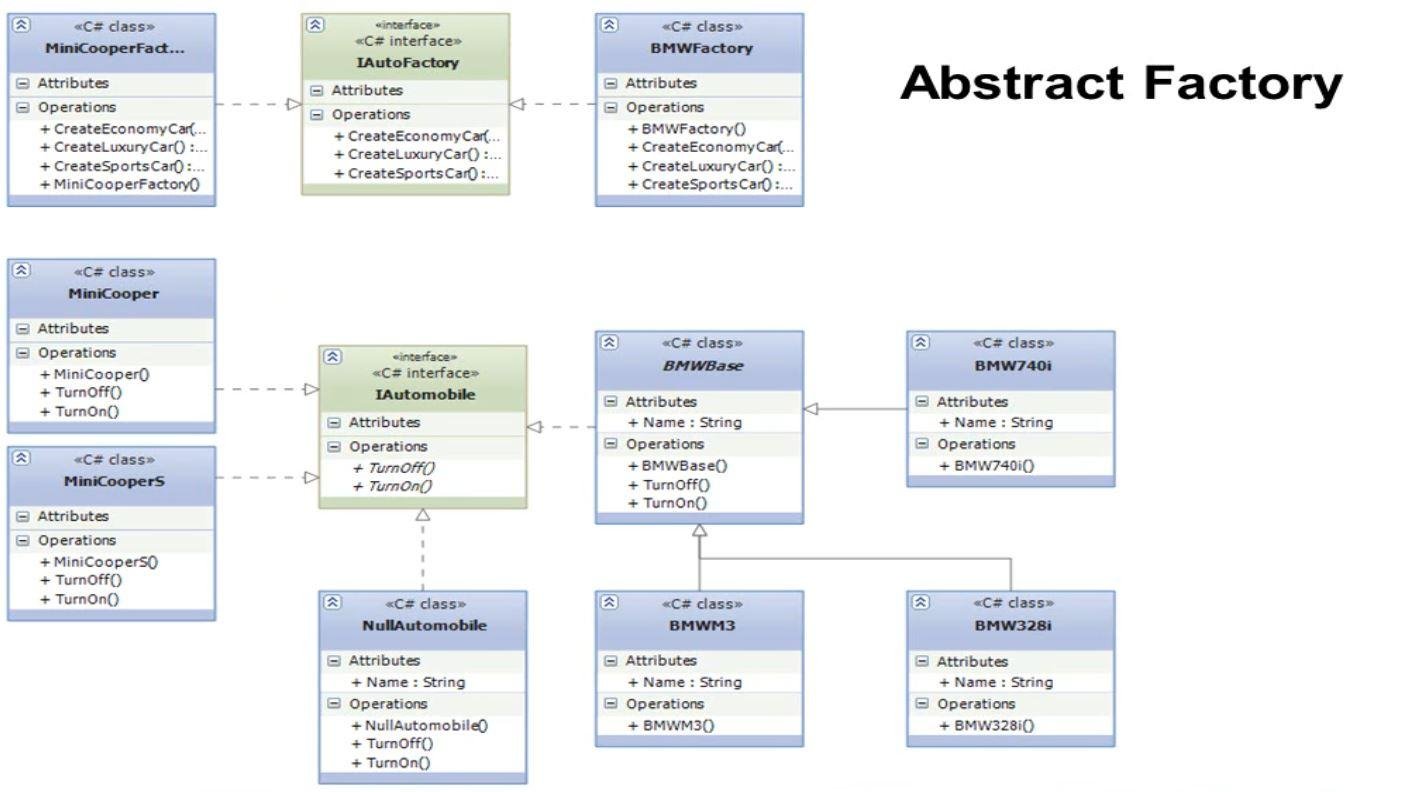
Consequences
- Add new factories and classes without breaking OCP
- Defer choosing classes to classes that specialized in making that decision
- Using private or internal constructors hides direct construction with the "new" keyword
Resources
- Pluralsight Design Patterns Library Course
- oodesign.com
-
C# 3.0 Design Patterns
- By Judith BISHOP
- Publisher: O'Reilly Media
-
-
By Eric Freeman, Elisabeth Robson, Bert Bates, Kathy Sierra
-
Publisher: O'Reilly Media
-
thanks....
@brs_snmz
Design Patterns: Factory Pattern
By Barış SÖNMEZ
Design Patterns: Factory Pattern
- 460



